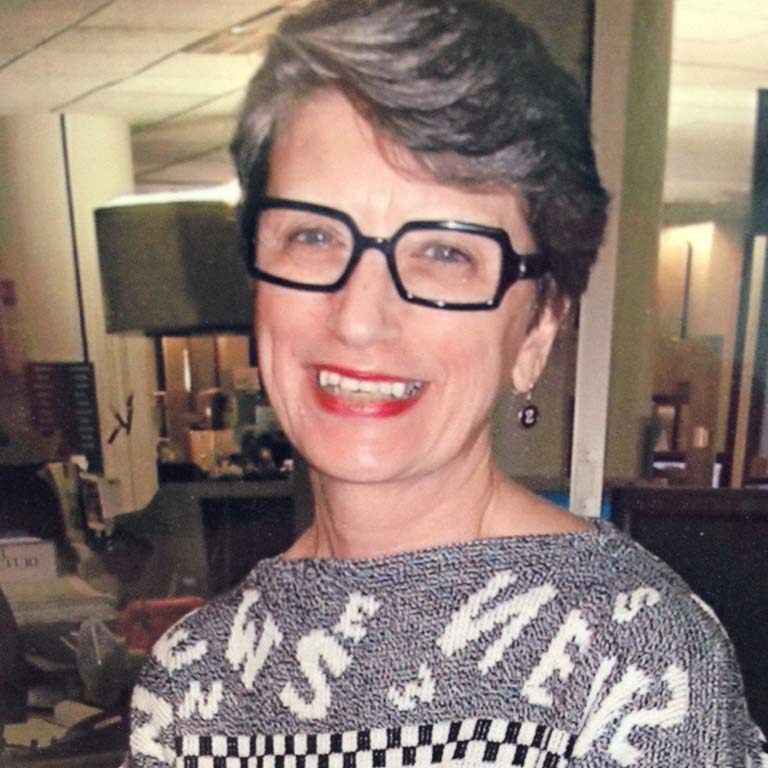In her four-decade career at major metropolitan newspapers, Myrna Oliver covered beats from general assignment to civil and criminal court cases to celebrity obituaries, carving a niche for herself at a time when few women were making marks in newspaper journalism and, later, when the industry itself began shrinking its newsroom staffs.
Born in Bloomington and brought up in Ellettsville, Indiana, Oliver spent most of her youth aspiring to be a lawyer. At IU, she studied journalism and served as editor of both the Arbutus and the Indiana Daily Student. During her senior year at IU, she still was considering law school. Journalism professor Chris Savage encouraged Oliver to apply for a fellowship to Syracuse University for a master’s degree in journalism, and, lacking finances to attend law school, Oliver applied and was accepted.
With her master’s degree in hand, Oliver spent 14 months as an assistant press secretary and speechwriter for U.S. Sen. Birch Bayh. After that, she spent about a year at The Indianapolis News. She was assigned to the women’s department, but fashioned a beat for herself following women in politics.
In 1968, Oliver headed west to work at the Los Angeles Herald-Examiner, where she covered the trials of Charles Manson and Robert F. Kennedy’s assassin, Sirhan Sirhan. Four years later, she accepted a job as the civil courts reporter for the Los Angeles Times, where she would remain until her retirement in 2006. While civil courts may not receive the attention and infamy of criminal courts, Oliver said in an in an interview that she loved it. She reported on cases concerning First Amendment issues and on civil rights cases about issues such as gay rights.
After 15 years at the Times, Oliver transitioned from court reporting to writing obituaries. While working as a legal affairs reporter, she sat near the obituary writer, who was overwhelmed with work the day Muppets creator Jim Henson died. Oliver volunteered to write the obituary, which ran on the front page. She would go on to write the obituaries of Wal-Mart founder Sam Walton, actor and singer Gene Autry and composer Leonard Bernstein, among others. But she applied her distinctive style of telling life stories to the little-known as well as celebrities.
When she looks back, Oliver said she considers how she had to endure through the challenges of the newspaper industry, including being a woman in what used to be a man’s world. When she started at the LA Times, there was no women’s restroom on the newsroom floor.
Oliver also said civil court judges were less than welcoming when she began her beat at the Times. When judges were unwilling to talk to her, however, she would persevere by reading every piece of paperwork about the trial. She said in an interview that if she couldn’t get the story one way, she’d do it another.


